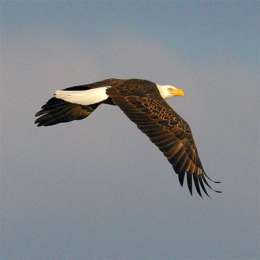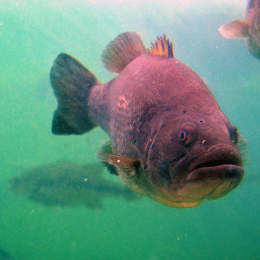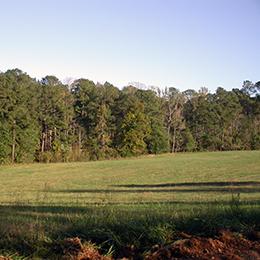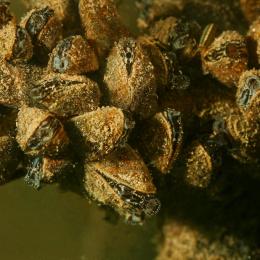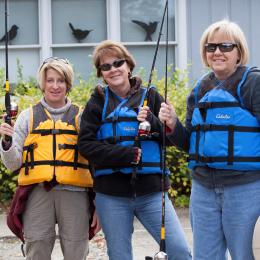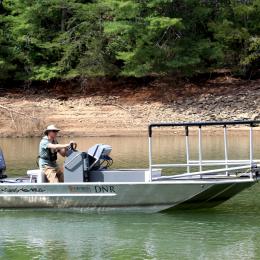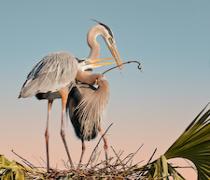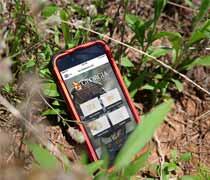Invasive snails found around the state can cause harm to aquatic environments, and to public health (if consumed).
Now, more than ever, the Georgia Department of Natural Resources’ Wildlife Resources Division (WRD) continues to encourage anglers, boaters, and lake visitors across the State to help prevent the spread of invasive snail species, due to the recent discovery that these species can harbor a type of worm that can potentially cause illness in humans (if consumed).
In a recent cooperative study, WRD and Dr. Tyler Achatz’s parasitology lab at Middle Georgia State University, examined two species of invasive aquatic snails, the apple and mystery snail, for various parasites.
In this study, apple and mystery snails were collected from multiple locations around the state and tested for the presence of various parasites. Test results confirmed a low-level presence of rat lungworm (a parasitic nematode) in both snail species. This parasite can be transmitted to people when snails or slugs are eaten raw or undercooked.
The likelihood of becoming infected with rat lungworm is very low. However, in extreme rare cases, infection may lead to eosinophilic meningitis, with complications including the possibility of death. While this newest discovery is alarming, the Centers for Disease Control website notes that the parasite does not replicate in humans and human-to-human transmission does not occur.
Prior to this study, rat lungworm had only been discovered one previous time in Georgia, in rats near the Atlanta Zoo (2019). While this parasite has been noted in invasive snails in other states, this is the first time it’s been documented in snails in Georgia.
These positive tests mean it continues to be important to remain vigilant against invasive species, to protect your health and the health of Georgia waters.
Introduction of Invasive Species is Preventable
Apple snails are originally native to South America and mystery snails are native to southeast Asia, Japan, and Russia. But both species have been introduced into several states, including Georgia.
Apple and mystery snails are illegal to possess in Georgia (since 2023). However, WRD remains concerned that people may continue to move or introduce these snail species to public waters or to handle and eat these invasive snails.
Invasive aquatic species can cause significant ecological and economic impacts across the state, from damaging vessels and other boating equipment, impeding access to waterbodies, to disrupting the natural ecosystem by displacing and out-competing native species. They can additionally cause human health concerns, as seen with this recent discovery regarding apple and mystery snails.
Prevention is the first and most important step to reducing the risk of invasive species establishing populations in Georgia waters. Taking time to thoroughly wash down your boat, trailer, and fishing gear after each outing on the water; choosing to not dump aquariums; or simply not intentionally releasing non-native species into waterbodies where they did not previously occur are just a few ways you can help.
For more information on invasive species, including apple and mystery snails, and how to report sightings, visit GeorgiaWildlife.com/ans. For more information on rat lungworm and its potential health implications, contact the CDC at Rat Lungworm Disease (Angiostrongylus) | CDC (https://www.cdc.gov/angiostrongylus/about/index.html).
###






